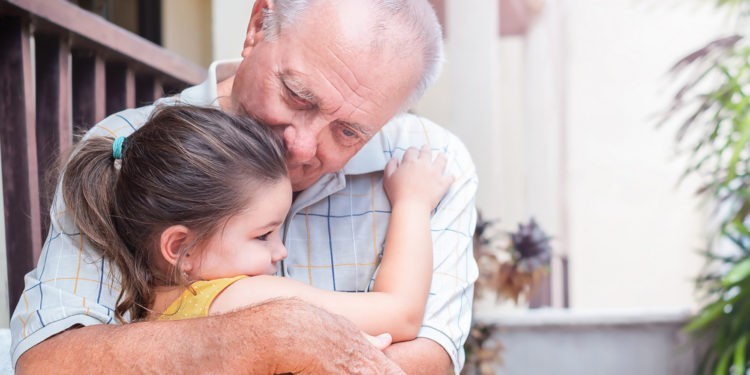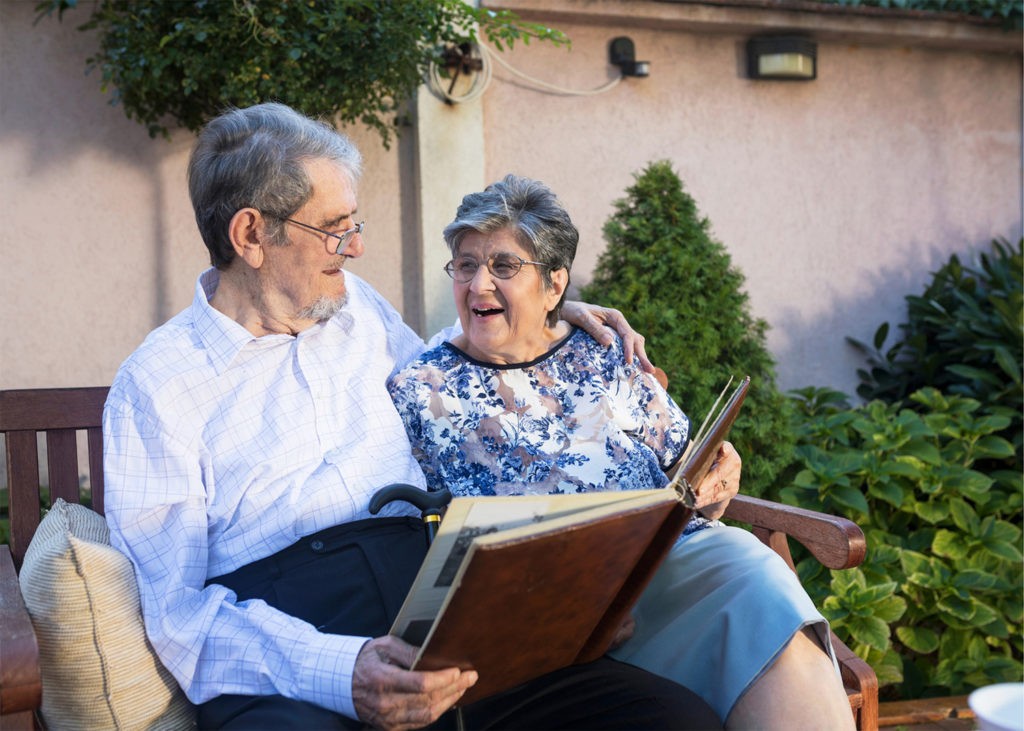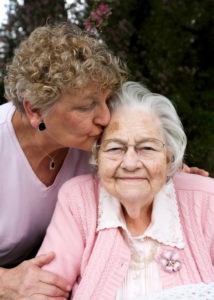Peace of Mind

To help you focus on what matters most
Story by Sarah Ruttle
When a loved one is facing a serious illness or near the end of their life, it can be an especially challenging time for all family members. Young children may not fully understand what is happening, but feel the changes to their routine, the absence of a parent who has taken on a caregiving role, or an overall shift in the mood of the household. Adolescents and teens, aware of the situation, might struggle to process and express their emotions. For adults who have taken on the role of primary caregiver to a family member, the layered emotions and responsibilities are overwhelming. Tasked with understanding your loved one’s health condition, meeting their basic and physical needs as well as their social and emotional needs, it becomes difficult to care for your own needs.

A shifting focus on self-care
There has been more attention in the past two years on the importance of parents – especially mothers – advocating for their own personal needs. This has resonated with me, in part because I am myself a mother of three young kids, but more so because I am the daughter of a mother who to this day struggles with guilt associated with putting her own needs before the needs of others. Growing up, I was fortunate to have a wonderful mother. She was imperfect, messy and always running late, but she was dedicated to giving her three girls a fun, enriching childhood that was full of love and opportunity. She had a unique answer to every question, a catchphrase solution to every problem, and a craft or outing for us to enjoy together with every spare minute.
What I only realize now looking back, is that she neglected to meet her own needs. Initially I attributed it to a personal martyrdom, deciding she must take pride or find joy in putting others before herself. After all, isn’t the praise of self-sacrifice the main purpose of becoming a mother? What I didn’t realize until I became a mom myself, is that this is a learned state of being, and one that not she nor any person naturally enjoys. Neglecting her own needs was a behavior learned in part from societal expectations but also from her own mother, likely passed on through generations before her. A sort of self-survival in a society that somehow salutes individualism but shames self-care, at least for women. When she was caring for my dying grandmother, I again found myself feeling proud of what a wonderful caregiver she was. At this stage in my life, I had gained the perspective to also question whether she was taking care of herself as she went through the emotional journey of saying goodbye to her mom.

Expertise, compassion and comfort
Our society hasn’t quite caught up to recognizing the needs of caregivers to a family member at the end of their life, in the way it’s started to for caregivers of young children. It is, however, something hospice and palliative care providers are acutely attuned to and equipped to support. It’s seen as such a great need, in fact, that family caregiver support is a core component to hospice care. For mission-based, nonprofit providers like Kansas City Hospice & Palliative Care, robust family and caregiver support is a priority.
The expert care provided to a loved one receiving end-of-life services gives family members reassurance that their physical needs will be met and their pain and other symptoms alleviated. The compassionate support shown by professional palliative care and hospice staff gives the comfort of knowing social, emotional, spiritual and mental needs will also be cared for. Combined, these multidisciplinary services provide a peace of mind that allow families to focus on what matters most, spending time together and making lasting memories with a loved one in their remaining time. It allows people to take a step back from their caregiving role and just be a daughter, grandson or sibling, free from the burden of being the sole caregiver.

Meeting the needs of caregivers
24/7 care and meaningful hospice volunteer programs like that offered by Kansas City Hospice & Palliative Care provide peace of mind that you can step away from your loved one to attend to your own needs, without worry they will be left alone. Whether it be for a meal, a hot shower, a nap or some time home with your other family members or even just yourself, this support is provided because we know caring for your own needs and getting a respite are so critical to your own well-being.
Over time, caregiver stress can lead to burnout, a condition marked by irritability, fatigue, problems with sleep, weight gain, feelings of helplessness or hopelessness, and even social isolation. This not only makes it difficult to continue to devote yourself to your loved one, but can cause even more stress as you might begin to question your own abilities or feel guilty that you can’t do more or be more. Self-care is central to avoiding caregiver burnout, staying physically and mentally healthy, and being able to enjoy your time with your loved one. It’s important to ask for help when you need it, and your hospice nurse or social worker is a good person to start with.
Hospice also gives you the peace of mind that you will not be alone as you take the journey of saying goodbye to your loved one and learning to live without them. We all know how significant the time at the end of someone’s life is, and both patients and families seek ways they can make this time meaningful and peaceful. I know from my own experience with loss that the memories made during this time are so precious and can carry you through your grieving and the rest of your own life. Hospice connects people to their past and helps them share their memories before they die. In addition to non-denominational chaplains who can work with both patients and family members, we offer expressive therapy to help people connect through art and music. Listening to a favorite song can connect someone to their past or allow them to open up emotionally. We also have Veterans Honor and patient Celebration of Life ceremonies, which help families celebrate and reflect on their loved one’s accomplishments and honor who they were throughout their lifetime.
Importantly, Kansas City Hospice provides all families with grief support. We have a range of options, depending on what you find meaningful. This can start with anticipatory grief support, extends for 13 months following the death of a loved one, and can continue for as long as you or your family members need with Kansas City Hospice Solace House community grief support programs. This lasting journey through grief is one that never really ends, but with the right support it’s one through which you’ll begin to find peace and even joy in the memories of those lost.






